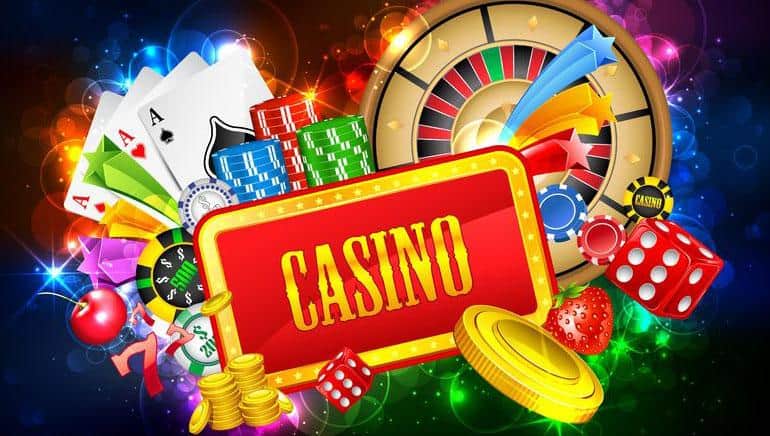
Casino games have long been a engaging form of entertainment, drawing millions of players from diverse cultures around the globe. From the glitzy casinos of Las Vegas to the busy gambling halls of the Chinese gambling capital, these games serve as a link that unites people across a variety of backgrounds. The allure of fortune, skill, and uncertainty entices not only those looking to gamble for profit but also those looking for a sense of community.
The significance of casino games extends significantly past the gaming floor. They often represent the values and beliefs of the cultures in which they flourish. Games such as poker, pontoon, and roulette have woven themselves into the fabric of mainstream culture, influencing everything from cinema to clothing. As we explore this captivating intersection of gambling and society, we can gain insights into how casino games shape and are influenced by the surrounding world.
Historical Progression of Casino Activities
The origins of gaming activities can be traced back to historical cultures, where betting in various forms was widely engaged in. In Ancient China, around 2300 B.C., a type of gambling known as Keno was well-known, while in old Rome, soldiers would frequently gamble on the results of their matches. tỷ lệ nhà cái The notion of using luck for entertainment and income developed over the years, leading to the creation of more organized activities. By the late Middle Ages, gambling houses started to appear in European nations, notably in Italy, which brought forth early forms of popular games still enjoyed today.
As betting gained fame in Europe, the 17th and 18th centuries saw the rise of casinos as exclusive venues for betting. The initial official casino, the Ridotto, was set up in the city of Venice in 1638, featuring games like the game of Baccarat and Faro. This era marked a crucial turning point, as casinos commenced to draw not just the elite but also the growing middle class. The sophistication of activities increased, leading to the introduction of new guidelines and versions that enriched the gaming experience.
In the 19th century, the era of industrialization and shifts in social norms also altered the landscape of gambling games. The arrival of roulette and new one-armed bandits pulled in a broader clientele, and gambling establishments became seen as legitimate recreation. This era witnessed the globalization of gambling, as gambling houses spread from European nations to the Americas, culminating in the establishment of the iconic Strip of Las Vegas in the 20th century. The progress of gambling games has continued into the modern era, incorporating technology and online services, allowing them available to a worldwide population.
# Cultural Significance in Different Cultures
Gambling games have significant cultural significance in a multitude of cultures around the globe. In Las Vegas, the very essence of the city is woven around casinos, where playing is not just a hobby but a central aspect of leisure and community life. The dazzling lights and vibrant atmosphere attract a vast audience, showcasing how games of chance can impact local financial landscapes and local cultures. This surrounding transforms the notion of recreation into an engaging experience that influences apparel, sound, and even film.
Conversely, some societies view gambling with an air of caution, viewing it through the lens of morality and customs. A case in point, in many Eastern cultures, games like Mahjongg and Pai Gow are steeped in history and carry significant social meanings. These games are often played during gatherings and celebrations, fostering community bonds and strengthening familial ties. The act of engaging in these games goes past mere leisure, reflecting ethics such as respect for elders and the importance of collective enjoyment.
Meanwhile, in European countries such as Monte Carlo and Rome, games of chance serve as symbols of wealth and elegance. The refined atmosphere of these venues attracts both travelers and native inhabitants, upholding a sense of prestige and exclusivity. The art of poker and the tactical components of games like the game of baccarat are celebrated, molding interpersonal interactions and cultivating an attraction that captivates a heterogeneous audience. This emphasizes how casino games can concurrently mirror and shape cultural perspectives towards risk, benefit, and community interaction.
Economic Impact and Travel Industry
Casino games play a important role in the economic landscape of many regions, particularly those that rely heavily on tourism. The revenue generated from gambling establishments fuels local financial systems, creating jobs not only within the casinos but also but also in related sectors such as hotel management, restaurant services, and recreation. This surge of tourists, drawn by the allure of games and the overall gaming environment, stimulates spending across multiple local enterprises, contributing to the economic health of the region.
The existence of casinos often leads to the development of facilities, including lodging, transportation systems, and leisure amenities. These improvements are essential in enhancing the overall visitor satisfaction, making locations more attractive to tourists. Additionally, many casinos contribute in local communities through sponsorship of events and charitable initiatives, further embedding themselves into the social fabric of the locality. Such contribution not only supports economic growth but also fosters a positive image of the casino industry.
Furthermore, the global popularity of casino games drives tourism competition, with regions vying to attract players from across the globe. Iconic destinations like Las Vegas and Macau have become synonymous with casino culture, drawing millions annually. This advantage encourages creativity and diversification within the gaming industry, influencing trends in leisure and accommodation that resonate beyond their limits. The ripple effects of this tourism extend wide, impacting local economies and cultural interactions on a global scale.
